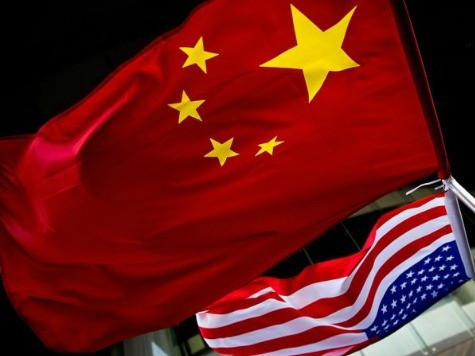Zbigniew Brzezinski who served as national security adviser to President Carter proposes “enhanced cooperation” between the U.S. and China focused on “global stability” and formalized into a “Pacific Charter.”
Meanwhile, the Chinese government has been intensifying anti-American rhetoric.
Furthermore, Brzezinski’s proposal comes at a time when Chinese government hackers are being accused of breaching the computer network of the United States Postal Service, “compromising the data of more than 800,000 employees — including the postmaster general’s,” as reported by The Washington Post.
The U.S. Department of State, in its latest country reports on human rights practices, also highlighted numerous violations in China, further distancing the communist country from American political and social values.
In an interview with The Huffington Post published Nov. 10, Brzezinski explained why the U.S.-China “Pacific Charter” is necessary, saying:
What is needed today is the enhancement of the U.S.-China relationship that is not focused on the specific national interests of each, but on the larger agenda of stabilizing the world before the present conflicts spin so far out of control they can’t be contained.
He said that interdependence is strong enough to induce enhanced collaboration between the two countries.
“The idea of a ‘charter’ is to indicate that this is a serious undertaking and not a set of slogans. Yes, the differences are great between the U.S. and China,” said the Carter administration official. “But what is remarkable is that both realize that our degree of interdependence is such that if one suffers so does the other. That is a very powerful inducement for some degree of enhanced cooperation.”
Brzezinski told HuffPo “now” is the time to form a U.S.-China “Pacific Charter.”
The day after the HuffPo interview was published, The New York Times reported that the Chinese government has stepped up its anti-American rhetoric.
The article noted a rise in “anti-Western sentiment, bordering on xenophobia, that has emanated from the highest levels of the Communist Party and sent a chill through Chinese civil society and academia.”
“In speeches, [Chinese president, Xi Jinping] has openly called on other nations to push back against the United States on specific issues,” added the Times.
Further distancing Chinese government values from that of their U.S. counterparts, the State Department’s Country Reports on Human Rights Practices for 2013, released in February, pointed out numerous violations in China.
“As in previous years, citizens did not have the right to change their government, and citizens had limited forms of redress against official abuse,” the Times reported.
The report mentioned the following human rights violations, among many others:
Extrajudicial killings…enforced disappearance and incommunicado detention…torture and coerced confessions of prisoners; detention and harassment of lawyers, journalists, writers, bloggers, dissidents, petitioners…a coercive birth-limitation policy that in some cases resulted in forced abortion (sometimes at advanced stages of pregnancy) or forced sterilization; trafficking in persons…forced and child labor…
Despite these differences, Brzezinski told HuffPo, “China today is a major power, co-equal economically with the United States. It is militarily significant. And it has a major stake, just as the U.S. does, in international stability.”
“It would seem to me that China could play a unique role in stabilizing the Middle East, for example. The role of France and Great Britain has been damaged there by its history of colonialism,” he added. “The U.S. has been severely weakened by the pre-emptive attack in Iraq and the consequent disintegration there. China, which has serious economic and energy interests in the Middle East but no political baggage, would seem to me to have a great stake in playing a role that reinforces stability there.”
HuffPo noted that the Carter administration official’s “Pacific Charter” idea is aimed at pushing further Obama’s notion that China should “be a partner in underwriting the international order, not undermining it.”
The president made those comments during his recent visit to Beijing.

COMMENTS
Please let us know if you're having issues with commenting.